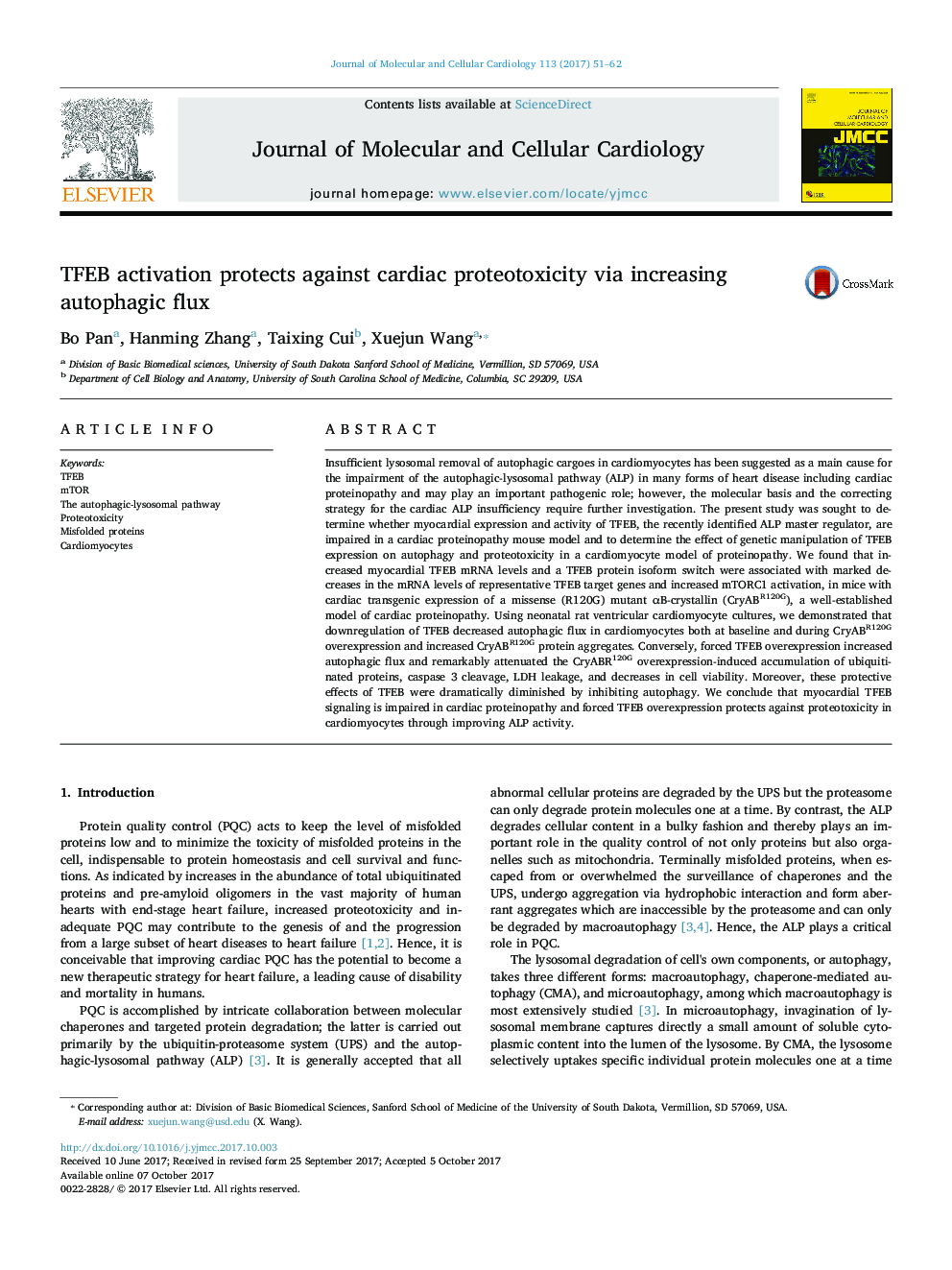| Article ID | Journal | Published Year | Pages | File Type |
|---|---|---|---|---|
| 5533407 | Journal of Molecular and Cellular Cardiology | 2017 | 12 Pages |
â¢Myocardial TFEB signaling is suppressed in CryABR120G-based proteinopathy.â¢TFEB knockdown suppresses autophagic flux in cultured cardiomyocytes.â¢TFEB overexpression elevates autophagic flux in cultured cardiomyocytes.â¢TFEB facilitates autophagic removal of a bona fide misfolded protein.â¢Protection of TFEB against cardiac proteotoxicity depends on autophagy.
Insufficient lysosomal removal of autophagic cargoes in cardiomyocytes has been suggested as a main cause for the impairment of the autophagic-lysosomal pathway (ALP) in many forms of heart disease including cardiac proteinopathy and may play an important pathogenic role; however, the molecular basis and the correcting strategy for the cardiac ALP insufficiency require further investigation. The present study was sought to determine whether myocardial expression and activity of TFEB, the recently identified ALP master regulator, are impaired in a cardiac proteinopathy mouse model and to determine the effect of genetic manipulation of TFEB expression on autophagy and proteotoxicity in a cardiomyocyte model of proteinopathy. We found that increased myocardial TFEB mRNA levels and a TFEB protein isoform switch were associated with marked decreases in the mRNA levels of representative TFEB target genes and increased mTORC1 activation, in mice with cardiac transgenic expression of a missense (R120G) mutant αB-crystallin (CryABR120G), a well-established model of cardiac proteinopathy. Using neonatal rat ventricular cardiomyocyte cultures, we demonstrated that downregulation of TFEB decreased autophagic flux in cardiomyocytes both at baseline and during CryABR120G overexpression and increased CryABR120G protein aggregates. Conversely, forced TFEB overexpression increased autophagic flux and remarkably attenuated the CryABR120G overexpression-induced accumulation of ubiquitinated proteins, caspase 3 cleavage, LDH leakage, and decreases in cell viability. Moreover, these protective effects of TFEB were dramatically diminished by inhibiting autophagy. We conclude that myocardial TFEB signaling is impaired in cardiac proteinopathy and forced TFEB overexpression protects against proteotoxicity in cardiomyocytes through improving ALP activity.
